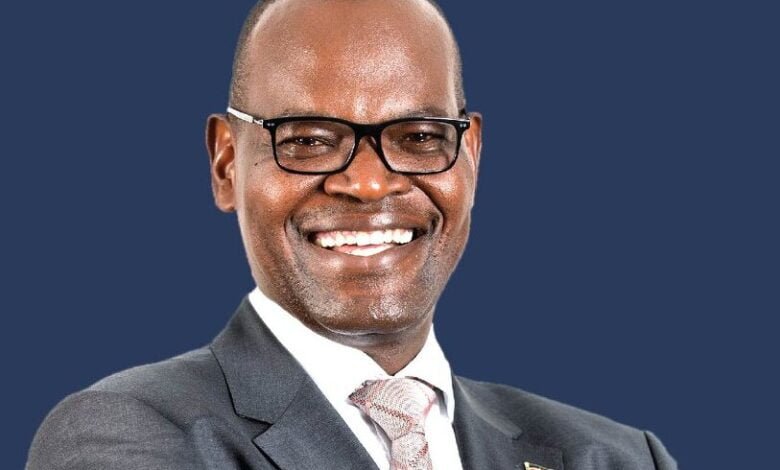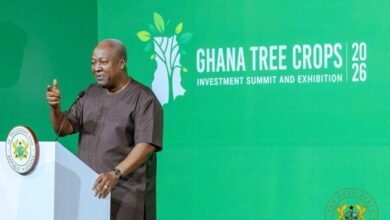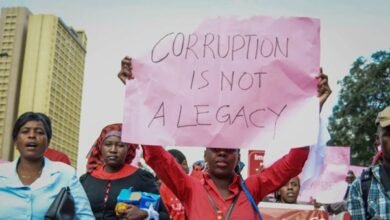John Omo : “Africa must develop 5G through renewable energy”
All economic forecasts predict a bright future for Africa, thanks to technological innovation and AI. But internet connectivity still needs to be effective and widespread. According to John Omo, Secretary-General of the African Telecommunications Union (ATU), both governments and the private sector must continue their efforts to meet this challenge. Above all, they must develop African solutions that are greener and less costly.

The main determinants of connectivity in Africa are probably about three. One is the cost of the terminal, the cost of the handset. Two is the economic well-being, the economic status of the population. For example, most people in Africa still are unable to afford smartphones for the reason that their economic base, their financial status would not enable them to afford. On the other hand, the cost of the handsets themselves are still priced at a very high.
We have some countries in Africa that are working to reduce the cost of handsets. In particular, Morocco is producing handsets there, cheaper handsets for the population.
Rwanda is working to produce cheaper handsets and also having schemes for placing handsets into people’s hands so that they are able to use smartphones for their communication.
The key point is for government to be involved in ensuring that there is ubiquitous connectivity amongst the population to stimulate economic development
There are governments that have offered very good incentives either to the private sector or to the public for purposes of ensuring connectivity. Rwanda is a classic example of such a government. Morocco is also trying quite a bit. But I think the key point is for government to be involved in ensuring that there is ubiquitous connectivity amongst the population to stimulate economic development.
There’s also, of course the cost of communication bandwidth, or rather bundles, for example. What is the priority for a woman? having bandwidth on your phone or food for your baby? The first priority will be certainly food for the baby. So, the trade off, especially for poor people is to meet their basic necessities such as food, such as shelter, as opposed to this, which they see as a luxury.
There’s every interest for government to ensure that connectivity is widespread amongst the population. There are several schemes for doing this by governments, one of which is universal service where the cost of handsets for people, especially those that are underserved to access the handset is subsidized. There are also other schemes where government is involved in building infrastructure. So, helping the operators to build infrastructure either through subsidies or not requiring the operators to pay fees so that the money they would use to pay fees, license fees or spectrum fees, they use that for purposes of rollout of their systems and services.
It’s in all our interests as a continent to find solutions to catch up
We need regulators in government, we need more cooperation on policies that are more effective. And that includes society. The people most affected by energy shortages are women. They bear the brunt of the consequences. It’s in all our interests as a continent to find solutions to catch up. Many people want to be smartly connected, for example through smartphones, but in our African ecosystem it’s like we’re skipping a step. In some countries there is no 3G, whereas today there is talk of 5G. We have to support this rapid transition. We all need these services for agriculture, for our children’s education. So, it’s our duty, for example, to bring children in rural areas onto the network so that they have access to the same connection as those in the cities.
The private sector, which is motivated by profits, has a key role to play here. As long as it sees an opportunity on a good return on investment, it will invest there. Government needs to incentivize the private sector
The private sector, which is motivated by profits, has a key role to play here. As long as it sees an opportunity on a good return on investment, it will invest there. Government needs to incentivize the private sector for purposes of rolling out more services and that incentive can take any form, right? It can take the form of subsidies, license fees, tax rebates, many forms but the private sector really is the engine for development.
Can we compromise on 5G without using too much energy? Yes, there are ways. I think the first thing we need to do is to develop a policy framework that allows us to strengthen innovation, especially in 5G, using the resources that exist on the continent. Africa is the continent with the greatest potential for the use of solar energy. There are many ways to generate this energy, which is an advantage. And let’s not forget wind energy… We need appropriate environmental policies that are compatible with the development of 5G. Africa needs to develop 5G through renewable energy. We also need to educate people to use these technologies properly. We need to raise awareness about energy conservation and waste. For example, children need to be taught to turn off their appliances when they are at school. Public awareness is a necessity, especially in the education of the very young.






